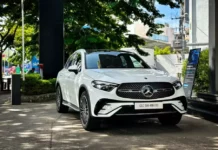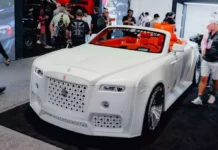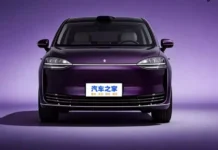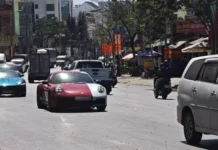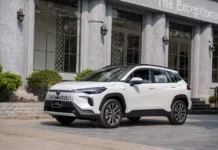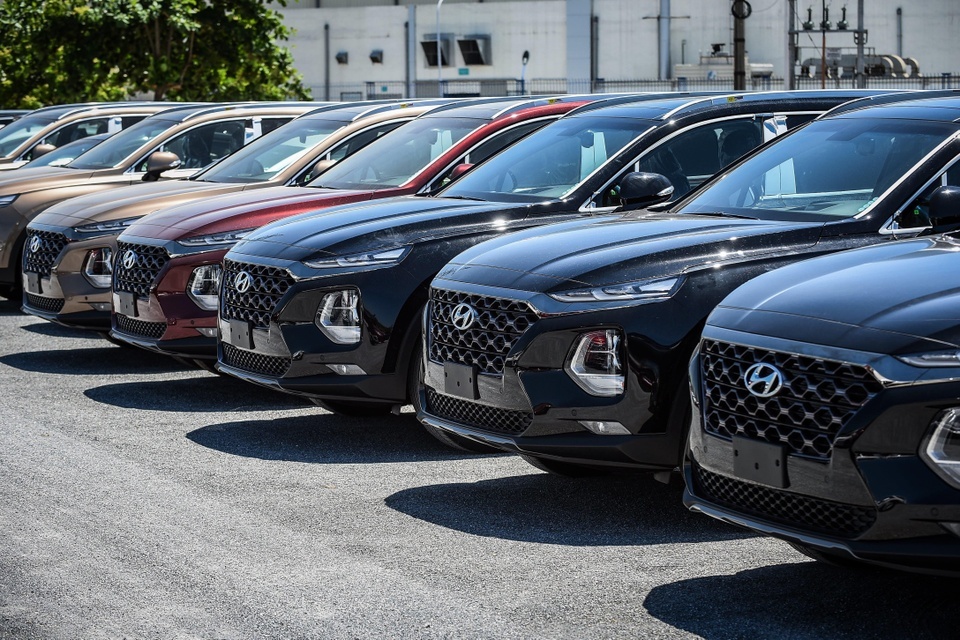
|
Despite multiple proposals since the beginning of the year, the government’s tax incentive policy for domestically assembled cars in Vietnam is yet to receive an official implementation date. With relatively low sales for most of the first and second quarters, the industry is hopeful that the government’s tax incentive will provide the much-needed boost to revive the domestic car market.
Awaiting Tax Relief
Earlier this year, Thaco petitioned the government to continue the 50% reduction in registration fees for domestically assembled vehicles and extend the deadline for the special consumption tax payment. Notably, Thaco’s move came almost immediately after the third round of tax incentives ended in December 2023.
In the past, Vietnam’s car market has benefited from the government’s registration fee reduction programs, each lasting six months. The first round began in July 2020 and ended in December 2020, the second round lasted from December 2021 to May 2022, and the most recent round provided a 50% reduction in registration fees for domestically assembled cars from July 2023 to December 2023.
During the first round of incentives, Vietnam’s car market showed significant improvement. According to the Vietnam Automobile Manufacturers’ Association (VAMA), the total car sales in Vietnam reached 24,002 units in June 2020, but this number increased to 47,865 units in December 2020, nearly doubling after the six-month incentive period.
| Most Effective Registration Fee Incentive for the Vietnam Car Market | ||||||||
| Sales performance before and during the registration fee incentive for domestically assembled cars in Vietnam in 2020 (Data: VAMA) | ||||||||
| Label | June 2020 | July 2020 | August 2020 | September 2020 | October 2020 | November 2020 | December 2020 | |
| cars | 24002 | 24065 | 20655 | 27252 | 33254 | 36359 | 47865 |
The second round of incentives initially showed less promising results, with the total car market growing by only 21% in the first month, followed by significant decreases in the next two reporting periods. However, the market rebounded strongly in March 2022, with a 62.1% growth rate, bringing the total car sales during the six-month incentive period to 223,400 units. This contributed to the record-high annual sales of 404,635 units in 2022.
However, the first month of 2023 saw a shocking 51% decline in car sales compared to the previous reporting period, with only 17,314 units sold. This prompted the implementation of the third round of registration fee incentives, effective from July 2023 to December 2023.
Unfortunately, this third round of incentives did not have the desired impact. The Vietnam car market did not experience the strong growth seen in the previous two rounds. Instead, car sales during this period mostly remained below 28,000 units per month, with a surge in sales only in the final month of 2023, reaching a total of 38,740 units, a 38.6% growth compared to November 2023.
|
|
|
The third round of registration fee incentives did not yield truly positive results. |
Faced with this situation, Thaco proposed extending the registration fee incentive program for domestically assembled cars earlier this year. However, the proposal by the assembler and distributor of Kia, Mazda, Peugeot, BMW, and MINI brands in Vietnam was not approved.
In late April, Prime Minister Pham Minh Chinh signed Directive 12 on key solutions for socio-economic development, instructing the Ministry of Finance to research and propose extensions for tax payments and reductions in registration fees for domestically produced and assembled cars. Following this, rumors circulated that the fourth round of registration fee incentives would be implemented from the beginning of July to the end of December, similar to the third round of incentives a year ago.
However, both car salespeople and buyers in Vietnam were caught off guard when, in early July, the Ministry of Finance proposed a 50% reduction in registration fees for domestically produced and assembled cars, with the policy expected to take effect from August and last until January 2025.
After months of anticipation, Vietnam’s car market is likely to receive another round of registration fee incentives starting next month, lasting for six months. However, will this policy be enough to rescue the car market’s sales after a relatively stagnant beginning of the year?
Unlikely Expectation of Lower Car Prices
The primary goal of the registration fee incentive policy is to reduce the on-the-road price of cars by providing support equivalent to 5-6% of the listed price. For a new car priced at 700 million VND, this support translates to a value of 35-42 million VND, which is not a significant amount compared to the total cost of owning a car.
Moreover, many car brands in the Vietnamese market have proactively anticipated this policy through promotional programs that offer registration fee support, with some models even receiving up to 100% coverage of this fee.
|
|
|
Honda CR-V is one of the models frequently offered with registration fee promotions. Photo: Honda Vietnam |
Notable examples in the Vietnamese car market include domestically assembled models such as the Honda City, Honda CR-V G and L versions, Mitsubishi Outlander, as well as imported models like the Subaru Forester, Mitsubishi Xpander, Suzuki XL7, and Suzuki Ertiga Hybrid, all of which currently enjoy maximum registration fee incentives.
In the luxury car segment, Mercedes-Benz Vietnam is also offering a 50% registration fee support for some domestically assembled models, including the GLC 200 4MATIC, E 300 AMG FL, and Mercedes-AMG C 43 4MATIC, with the highest incentive value reaching approximately 192 million VND.
In reality, as shared by a car dealership representative in Ho Chi Minh City with Tri Thuc – Znews, when the government’s registration fee incentive policy takes effect, dealerships will adjust their existing promotions for domestically assembled cars, likely resulting in reduced incentives.
Therefore, even if the registration fee incentive policy is implemented from August, it is unlikely that there will be significant changes in car prices that benefit consumers.
|
|
|
Car prices are unlikely to see significant changes even with the registration fee incentive policy. Photo: Phuong Lam |
However, looking on the bright side, the registration fee incentive policy for domestically assembled cars can serve as a “spiritual boost,” stimulating consumer demand, increasing sales, and helping the Vietnamese car market regain its growth momentum.
According to a salesperson at a Japanese car dealership, most customers are waiting for the official implementation of this policy before placing deposits for their car purchases. If this information is accurate, the Vietnam car market may experience an impressive sales growth in the first month of the registration fee incentive for domestically assembled cars.
Historically, the government’s registration fee incentive policy, although only applicable to domestically assembled cars, has positively impacted the sales of imported cars in Vietnam. In some reporting periods, like October 2020 and March 2022, the growth rate of imported car sales even surpassed that of domestically assembled cars.
Let’s wait and see how this fourth round of registration fee incentives for domestically assembled cars will influence the purchasing power of the Vietnam car market.
Recommended Reads for Your Journey
The Auto section recommends interesting books with diverse topics to our readers. During those moments of rest and relaxation on your journeys, books can be delightful companions.
“VinFast Sells Over 4,000 Cars in July 2024: VF 5 Plus Accounts for 65% of Sales”
VinFast, the Vietnamese automotive manufacturer, has reportedly delivered over 4,000 vehicles to customers in the month of July alone, according to recent industry insights. This impressive feat showcases the brand’s rapid ascent in the automotive industry, as they continue to gain traction and capture the attention of car enthusiasts across the globe.
The Ultimate Luxury: A Closer Look at the New Rolls-Royce Phantom VIII in Vietnam, Featuring a Bold Color, a Privacy Partition, and a Price Tag of 39 Billion VND
The seller claims that this 2022 Rolls-Royce Phantom VIII is 100% brand new and offers an incredibly competitive price of just 39 billion VND. This is an astonishing bargain compared to another Phantom VIII on the market, which is currently listed at 60 billion VND. This particular car might be a great deal due to its “western” license plate.


